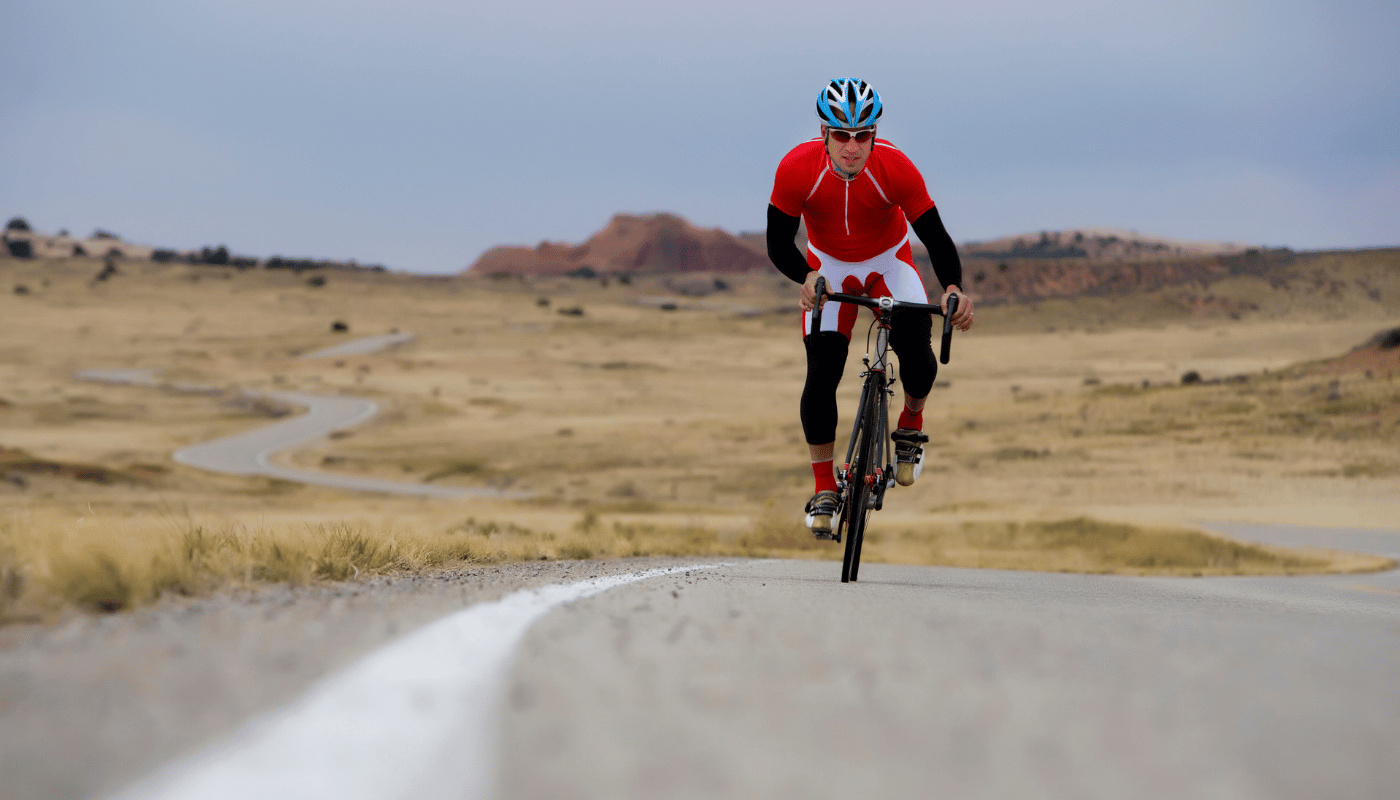Arizona’s DUI (Driving Under the Influence) laws are among the strictest in the nation, designed to address the dangers of impaired operation of vehicles. However, the question arises: can you get a DUI on a bicycle in Arizona? This might seem like an unlikely scenario, but Arizona law’s specific definitions and nuances make it a topic worth exploring.
The ambiguity lies in how Arizona defines “vehicles” under its DUI statutes. Traditional bicycles, powered solely by human effort, generally do not meet the legal definition of a vehicle. This distinction often exempts non-motorized bicycles from DUI charges. On the other hand, motorized bicycles, depending on their usage and the involvement of the motor, can sometimes fall within the scope of DUI laws.
Understanding if you can get a DUI on a bicycle in Arizona is essential due to the state’s specific legal definitions and the potential consequences of riding while impaired. While a non-motorized bicycle might not lead to a DUI, other legal issues, such as public intoxication or reckless endangerment, can still arise. For cyclists, knowing these distinctions is critical for both safety and compliance with the law.
Understanding Arizona’s DUI Laws
Arizona’s DUI laws are among the strictest in the country, designed to prevent impaired individuals from operating vehicles and endangering public safety. To determine whether you can get a DUI on a bicycle in Arizona, it’s important to understand the state’s DUI framework and its legal definitions. These laws apply primarily to “vehicles,” which Arizona law defines as devices used for transporting people or property on public highways. However, bicycles, particularly non-motorized ones, do not typically fall under this category. This distinction is key to understanding how DUI laws may apply differently depending on the type of bicycle.
The scope of Arizona’s DUI statutes includes offenses such as operating a vehicle with a blood alcohol concentration (BAC) of 0.08% or higher, penalties for first-time and repeat offenders, and consequences for drug-related DUIs. While the laws are primarily focused on motor vehicles, certain circumstances can bring motorized bicycles under these regulations.
Arizona DUI Law Highlights
- Legal BAC limit: 0.08% for standard drivers, 0.04% for commercial drivers.
- Zero-tolerance policy for minors under 21 (any detectable BAC).
- Penalties for first-time offenders include fines, license suspension, and mandatory education programs.
- Aggravated DUI for severe cases, such as extreme BAC or repeat offenses.
- DUI laws also cover impairment by drugs, including prescription medications.
Understanding these aspects of DUI laws in Arizona helps clarify their application. For instance, while non-motorized bicycles are not classified as vehicles, operating a motorized bicycle under the influence could result in similar penalties as for a car. It’s important for residents and visitors alike to recognize the implications of these laws, ensuring compliance and safety when traveling on Arizona’s roads.
Definition of a Vehicle in Arizona Law
The question of whether you can get a DUI on a bicycle in Arizona hinges on how bicycles are classified under state law. Arizona Revised Statutes (§28-101) define a “vehicle” as any device used to transport people or property on public highways, excluding devices powered solely by human effort. This legal distinction determines whether DUI laws apply to bicycles, particularly when comparing motorized and non-motorized types.
Motorized bicycles, which include devices equipped with a motor for propulsion, are more likely to be classified as vehicles under Arizona law. If the motor is engaged while operating the bicycle, the rider may face the same DUI charges as drivers of cars or motorcycles. This classification holds significant legal implications, as motorized bicycle riders are subject to strict penalties if caught operating under the influence, including fines, license suspension, and even jail time.
In contrast, non-motorized bicycles, powered entirely by human effort, are generally excluded from the definition of a vehicle. This means that riding a traditional bicycle while intoxicated typically does not result in a DUI charge. However, this does not exempt cyclists from all legal consequences, as they can still face charges for public intoxication, reckless endangerment, or violating traffic laws.
Comparison of Motorized vs. Non-Motorized Bicycles
| Type | Definition | DUI Applicability | Legal Risks |
| Motorized Bicycle | Bicycle equipped with a motor | Yes, if motor is engaged | DUI penalties: fines, suspension, jail |
| Non-Motorized Bicycle | Bicycle powered solely by human effort | No, typically excluded from DUI laws | Public intoxication, reckless endangerment |
Understanding these distinctions is crucial for Arizona cyclists. While non-motorized bicycles provide some legal leeway, the risks of impaired cycling remain significant. Riders must navigate the rules responsibly to ensure both safety and legal compliance.
Motorized Bicycles and DUI Charges
When asking if you can get a DUI on a bicycle in Arizona, the presence of a motor plays a crucial role. Arizona law often categorizes motorized bicycles as vehicles, especially when their motor is in use on public roads. This classification makes them subject to the same DUI laws as cars and motorcycles, meaning that operating a motorized bicycle under the influence can carry significant legal consequences. These include hefty fines, suspension of driving privileges, mandatory DUI education programs, and even jail time for repeat offenders or cases of extreme intoxication.
Motorized bicycles are increasingly common, blending the features of traditional bikes with motorized propulsion systems. Riders need to understand that engaging the motor on these devices subjects them to Arizona’s strict DUI statutes. Below are some scenarios where DUI laws can apply to motorized bicycle operators.
Scenarios Where DUI Laws May Apply
- Operating a motorized bicycle while the motor is engaged on public roads.
- Riding with a blood alcohol concentration (BAC) above the legal limit of 0.08%.
- Using a motorized bicycle while impaired by drugs, including prescription medications.
- Operating the motor in areas designated for non-motorized vehicles or pedestrians.
- Driving recklessly with active motor power, endangering others on the road.
These scenarios demonstrate how motorized bicycles, despite their smaller size, are treated similarly to motor vehicles under the law.
The consequences of being charged with a DUI on a motorized bicycle can be life-altering. In addition to fines and license suspensions, convictions may lead to criminal records that affect employment and personal opportunities. Cyclists who utilize motorized bicycles should exercise caution and avoid riding under the influence to ensure they remain compliant with Arizona’s DUI laws and protect themselves and others.
Legal Consequences of Biking Under the Influence
Even if you cannot get a DUI on a bicycle in Arizona, there are other legal consequences to consider when biking under the influence. While non-motorized bicycles are typically excluded from the state’s DUI laws, riding one while impaired still poses legal and safety risks that should not be overlooked. Arizona law holds cyclists accountable for reckless or dangerous behavior, regardless of the vehicle type.
Public intoxication is one potential consequence for impaired cyclists. Although Arizona does not have a specific law against public intoxication, authorities may issue citations for disorderly conduct or similar offenses if a cyclist’s behavior endangers themselves or others. For example, swerving into traffic or causing accidents due to poor judgment can lead to serious legal ramifications.
Reckless endangerment is another charge that impaired cyclists might face. This applies when someone’s actions create a substantial risk of physical harm to others. An intoxicated cyclist who causes a collision or obstructs traffic could be held liable, even without a DUI charge. In severe cases, such behavior could result in criminal charges, fines, or even imprisonment, depending on the circumstances.
Moreover, cycling while intoxicated increases the risk of personal injury. Impaired judgment and slower reaction times can lead to accidents, causing harm to the rider or others. These risks underscore the importance of avoiding alcohol or drugs before riding a bicycle, whether motorized or not.
Understanding these potential consequences is critical for all cyclists. While the legal system may treat non-motorized bicycles differently, the responsibilities of safe and sober riding remain the same. Cyclists must prioritize safety for themselves and others to avoid accidents and legal issues.
Safety Considerations While Biking Under the Influence
Biking under the influence presents significant safety risks, even if it doesn’t always result in a DUI charge. Impaired judgment, slower reaction times, and reduced coordination greatly increase the likelihood of accidents. Cyclists are already vulnerable road users, sharing space with cars, pedestrians, and other hazards. Adding alcohol or drugs to the equation amplifies these risks. Even if you can’t get a DUI on a bicycle in Arizona, impaired biking is still dangerous and can lead to serious injuries or fatalities.
Statistics show that alcohol is a factor in many cycling-related accidents. According to the National Highway Traffic Safety Administration (NHTSA), nearly 25% of cyclists killed in traffic accidents had a BAC of 0.08% or higher. These findings highlight how impairment significantly reduces a cyclist’s ability to respond to sudden changes, such as a car turning unexpectedly or a pedestrian crossing the road. Reaction times decrease even at lower BAC levels, making it harder to avoid collisions.
Accident Risks by Impairment Level
| BAC Level | Reaction Time | Accident Likelihood |
| 0.02% | Slightly reduced | Minimal increase, but impaired judgment |
| 0.05% | Noticeably slower | Increased risk of failing to avoid hazards |
| 0.08% | Significantly delayed | High likelihood of accidents or collisions |
| 0.15%+ | Severely impaired | Extreme risk of injury or fatality |
The table illustrates how even low levels of alcohol consumption can impair a cyclist’s ability to navigate roads safely. As BAC levels rise, the risks escalate dramatically, with severe impairments almost guaranteeing accidents in traffic-heavy areas.
Beyond physical dangers, impaired biking can also harm others. A cyclist who loses control can cause crashes involving pedestrians or vehicles, leading to potential injuries and liability. Riders should also consider that accidents may result in long-term consequences, such as medical bills, legal fees, or even permanent disabilities.
Ultimately, avoiding biking under the influence is crucial for personal and public safety. Choosing alternative transportation options, such as taxis or rideshares, ensures safer roads for everyone and eliminates the risks associated with impaired cycling.
Conclusion: Navigating the Legal and Safety Aspects
In conclusion, understanding whether you can get a DUI on a bicycle in Arizona requires awareness of both legal definitions and safety concerns. Arizona’s DUI laws are among the strictest in the nation, and while non-motorized bicycles are typically excluded from these statutes, motorized bicycles often fall under their scope. The distinction between these two types of bicycles is crucial, as riding a motorized bicycle under the influence can result in the same severe penalties as driving a car while intoxicated.
Even for non-motorized bicycles, biking under the influence carries significant risks. Cyclists may not face DUI charges, but they can still be held accountable for other offenses, such as public intoxication, reckless endangerment, or violating traffic laws. Additionally, impaired judgment, slower reaction times, and reduced coordination make biking under the influence extremely dangerous, not only for the cyclist but also for others on the road.
Safety should always be the top priority for anyone using a bicycle in Arizona. The physical vulnerability of cyclists on the road means that any level of impairment greatly increases the risk of accidents, injuries, or worse. Choosing alternative transportation methods, such as rideshares or designated drivers, is a simple and effective way to stay safe and avoid potential legal consequences.
Ultimately, staying informed about Arizona’s DUI laws and understanding the broader implications of impaired cycling ensures better decision-making and safer outcomes. Whether you are riding a motorized or non-motorized bicycle, sobriety is the best way to protect yourself and others, ensuring a safer experience for all road users.


